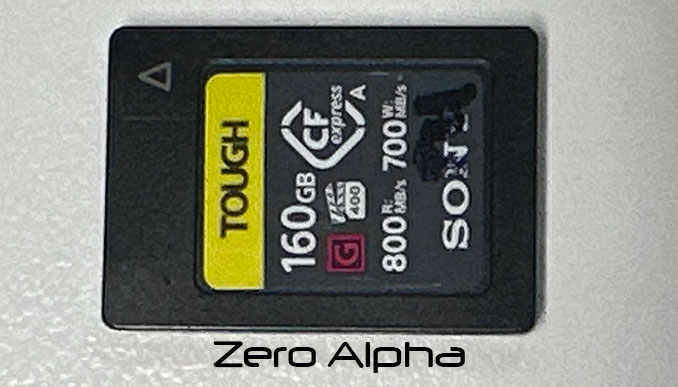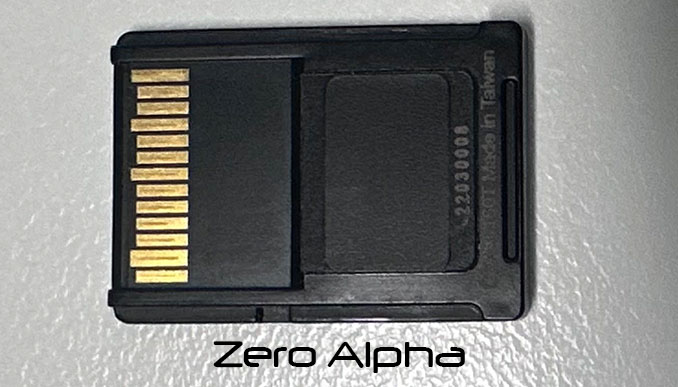SONY 160GB CFexpress Type A Memory Card Data Recovery
The SONY 160GB CFexpress Type A Memory Card is renowned for its high-speed performance, making it a preferred choice for professional photographers and videographers. However, data recovery from these cards can present several challenges. Zero Alpha team can perform data recovery to cover the key problems associated with data recovery from the SONY 160GB CFexpress Type A Memory Card:


-
Proprietary File System: Sony's CFexpress Type A cards may use a proprietary file system that is not easily recognized by standard data recovery software. This can complicate the recovery process, requiring specialized tools and knowledge.
-
High Data Density: With 160GB of storage packed into a small form factor, these cards have a high data density. This increases the complexity of data recovery, especially in cases of physical damage where precise handling is crucial.
-
Complex Error Correction: CFexpress Type A cards utilize advanced error correction algorithms to maintain data integrity. While beneficial for regular use, these algorithms can obscure the raw data during recovery attempts, making it harder to retrieve corrupted files.
-
Limited Recovery Software Support: Due to the relatively new and specialized nature of CFexpress Type A cards, there is limited support in existing data recovery software. Many popular recovery tools may not fully support these cards, leading to incomplete or unsuccessful recovery efforts.
-
Firmware Encryption: Some CFexpress cards, including those by Sony, may employ firmware-level encryption to protect data. This encryption adds an extra layer of complexity to data recovery, requiring decryption before any recovery process can commence.
-
Physical Damage Vulnerability: The compact design of CFexpress Type A cards makes them susceptible to physical damage. Recovering data from a physically damaged card often requires specialized equipment and cleanroom facilities, significantly increasing the cost and complexity of the recovery process.
-
Wear Leveling and Data Fragmentation: The wear leveling and data management techniques used in CFexpress Type A cards can lead to fragmented data across the storage media. This fragmentation complicates the recovery process, requiring more sophisticated algorithms to piece together the data.
-
Heat Sensitivity: CFexpress cards can generate significant heat during high-speed operations. Prolonged exposure to high temperatures can cause thermal damage, leading to potential data loss and complicating recovery efforts.
Conclusion
While the SONY 160GB CFexpress Type A Memory Card offers impressive performance for demanding applications, data recovery from these cards poses several significant challenges. The proprietary file systems, high data density, advanced error correction, limited software support, encryption, physical vulnerability, wear leveling, and heat sensitivity all contribute to the complexity of recovering lost or corrupted data.